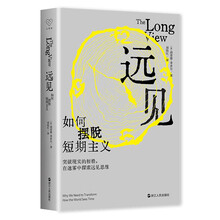










《小逻辑》构建了一个融思辨逻辑、形而上学本体论相统一的完整体系,它代表了形而上学和辩证法发展的高峰。
《小逻辑》主要包括“逻辑学概念的初步规定”、“存在论”、“本质论”和“概念论”四部分。黑格尔把“存在论”中的质、量、度作为论证的事实基础;把“概念论”中的绝对理念作为论证的最终结果,其基本思路就是探讨由这两者形成的思维(理念)和存在(现实)的关系问题。
导读注释者在英文原版的基础上进行导读、注释,并增加了术语汇编和简释,帮助读者扫除阅读障碍,更好地理解书中的内容。
1.] Philosophy misses an advantage enjoyed by the other sciences. It cannot like them rest the existence of its objects on the natural admissions of consciousness, nor can it assume that its method of cognition, either for starting or for continuing, is one already accepted. The objects of philosophy, it is true, are upon the whole the same as those of religion. In both the object is Truth, in that supreme sense in which God and God only is the Truth. Both in like manner go on to treat of the finite worlds of Nature and the human Mind, with their relation to each other and to their truth in God. Some acquaintance with its objects, therefore, philosophy may and even must presume, that and a certain interest in them to boot, were it for no other reason than this: that in point of time the mind makes general images of objects, long before it makes notions of them, and that it is only through these mental images, and by recourse to them, that the thinking mind rises to know and comprehend thinkingly.
But with the rise of this thinking study of things, it soon becomes evident that thought will be satisfied with nothing short of showing the necessity of its facts, of demonstrating the existence of its objects, as well as their nature and qualities. Our original acquaintance with them is thus discovered to be inadequate. We can assume nothing and assert nothing dogmatically; nor can we accept the assertions and assumptions of others.
2.] This thinking study of things may serve, in a general way, as a description of philosophy. But the description is too wide. If it be correct to say, that thought makes the distinction between man and the lower animals, then everything human is human, for the sole and simple reason that it is due to the operation of thought.
Philosophy, on the other hand, is a peculiar mode of thinking −− a mode in which thinking becomes knowledge, and knowledge through notions. However great therefore may be the identity and essential unity of the two modes of thought, the philosophic mode gets to be different from the more general thought which acts in all that is human, in all that gives humanity its distinctive character. And this difference connects itself with the fact that the strictly human and thought−induced phenomena of consciousness do not originally appear in the form of a thought, but as a feeling, a perception, or mental image −− all of which aspects must be distinguished from the form of thought proper.
According to an old preconceived idea, which has passed into a trivial proposition, it is thought which marks the man off from the animals. Yet trivial as this old belief may seem, it must, strangely enough, be recalled to mind in presence of certain preconceived ideas of the present day. These ideas would put feeling and thought so far apart as to make them opposites, and would represent them as so antagonistic, that feeling, particularly religious feeling, is supposed to be contaminated, perverted, and even annihilated by thought. They also emphatically hold that religion and piety grow out of, and rest upon something else, and not on thought. But those who make this separation forget meanwhile that only man has the capacity for religion, and that animals no more have religion than they have law and morality.
Those who insist on this separation of religion from thinking usually have before their minds the sort of thought that may be styled after−thought. They mean 'reflective' thinking, which has to deal with thoughts as thoughts, and brings them into consciousness. Slackness to perceive and keep in view this distinction which philosophy definitely draws in respect of thinking is the source of the crudest objections and reproaches against philosophy. Man — and that just because it is his nature to think −− is the only being that possesses law, religion, and morality. In these spheres of human life, therefore, thinking, under the guise of feeling, faith, or generalised image, has not been inactive: its action and its productions are there present and therein contained. But it is one thing to have such feelings and generalised images that have been moulded and permeated by thought, and another thing to have thoughts about them. The thoughts, to which after−thought upon those modes of consciousness gives rise, are what is comprised under reflection, general reasoning, and the like, as well as under philosophy itself.
The neglect of this distinction between thought in general and the reflective thought of philosophy has also led to another and more frequent misunderstanding. Reflection of this kind has been often maintained to be the condition, or even the only way, of attaining a consciousness and certitude of the Eternal and True. The (now somewhat antiquated) metaphysical proofs of God's existence, for example, have been treated, as if a knowledge of them and a conviction of their truth were the only and essential means of producing a belief and conviction that there is a God. Such a doctrine would find its parallel, if we said that eating was impossible before we had acquired a knowledge of the chemical, botanical, and zoological characters of our food; and that we must delay digestion till we had finished the study of anatomy and physiology. Were it so, these sciences in their field, like philosophy in its, would gain greatly in point of utility; in fact, their utility would rise to the height of absolute and universal indispensableness. Or rather, instead of being indispensable, they would not exist at all.
导读
— 001 —
Bibliographical Notice on the Three Editions and Three Prefaces of the Encyclopaedia of the Philosophical Sciences
— 001 —
The Science of Logic
Chapter I: Introduction
— 019 —
Chapter II: Preliminary Notion
— 047 —
Chapter III: First Attitude of Thought to Objectivity
— 077 —
Chapter IV: Second Attitude to Objectivity
I. Empiricism
— 093 —
II. The Critical Philosophy
— 100 —
Chapter V: Third Attitude of Thought to Objectivity
Immediate or Intuitive Knowledge
— 139 —
Chapter VI: Logic Further Defined and Devided
— 161 —
Chapter VII: First Subdivision of Logic
The Doctrine of Being
— 174 —
Chapter VIII: Second Subdivision of Logic
The Doctrine of Essence
— 226 —
Chapter IX: Third Subdivision of Logic
The Doctrine of the Notion
— 304 —
术语汇编与简释
— 397 —